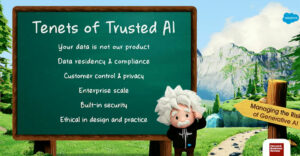
Customers are increasingly turning to company Facebook pages and Twitter accounts when they have questions or problems, rather than emailing or phoning their inquiries. A recent report from independent analysis firm thinkJar shows that 86 percent of organizations are using Facebook or Twitter for customer service. To deal with the problems properly, and sufficiently resolve customer issues, it’s imperative to have real customer service agents in place — trained in how to respond publicly via social channels.
For social customer service agents, interactions on Facebook or Twitter are not reserved for the private domain. Rather, they are a public response from the brand, able to be re-tweeted or shared. The reality of the matter is that social agents are often responding to issues that are different from standard transactional matters received in call centers (especially when they are proactively reaching out to customers tweeting about issues). When potential crisis situations emerge, social agents must work directly with marketing and communications teams to handle things correctly or face potential brand damage.
One best practice we’ve seen across hundreds of major retailers has been to set up new teams of agents, with their own training, tools, and processes. As the volume of issues received via social continues to rise rapidly, every company will face the same challenges of needing to scale up their social customer service operations. Here are some things to keep in mind when doing just that.
Recruit a Team With the Right Skills
It’s essential that your social agents have a strong customer-service history — they should be your top agents. Many of our customers establish their social teams with their executive or VIP service agents to ensure the best and brightest are representing their brand publicly. Maintaining a high level of written communication skills is highly critical to ensure messages are presented to customers in the most clear and concise way possible. This will sometimes require limited characters and quick responses in a highly public forum. A thorough knowledge of social platforms can be useful; although our experience shows that good agents can learn quickly on their feet.
Despite these core principles, some of our customers have much more stringent general requirements. More brands in today’s environment strongly consider education level when recruiting their social customer service team. No company can afford to have poorly written responses as the official voice of their brand online.
Create Training Documents With Dos and Don’ts
As a company, it’s important to formulate clear, basic rules for your social media team to follow. Getting the right tone for public responses on Facebook and Twitter is a big challenge. Marketing and social media teams need to work collaboratively and provide significant input.
How chatty or informal do you want to be? Should you use abbreviations such as “lol” or not? To start with, create examples of recommended phrases that agents can integrate into their responses. Once the agents become more comfortable delivering social customer service, they can begin to make their own tweaks to phrases to make them more personal. Along the way, team leaders should be paying careful attention to crafted responses by agents to check for tone. Don’t forget to point out things that agents should avoid saying. By making these clear, there won’t be any uncertainty when crafting responses.
Establish an Approval Process Before Going Live
Like anything, becoming a social customer service expert takes time. When new agents come on board, managers should set up a system to approve a new agent’s messages before they go public. How long this approval process goes on for is up to the discretion of the company — we’ve seen it go from two weeks, to three months.
Once an efficient approval process is in place, actively involve your social agents. Establish a clear audit trail, and measure agent performance and punctuality in response times in a collaborative environment to further bolster team development.
Create a Checklist for Crafting Responses
New social customer service agents can benefit greatly from a checklist of things to consider before posting a reply to a customer. A checklist can also help new agents to feel confident that they’ve covered all of the bases. When creating your list, consider the following:
- Think first before hitting reply.
- Solve issues in as few messages as possible.
- Keep communication public, unless discussing personal information.
- Mirror the positive enthusiasm of a customer, and show empathy when receiving a negative comment.
- Try to end all interactions on a positive note.
- Formalize a process for prioritizing problematic messages.
It’s important for a company to develop a plan for determining how different types of messages should be handled. There are times when messages will pop up that require immediate assistance from the customer service manager. If a message could spark a public relations crisis, it will need to be brought to the right team. A comprehensive plan will help make all of these instances clear.
Given the extremely wide range of messages that come through social media, both immediate responses and escalation routes can be complicated, but pulling all considerations together into a response map will streamline organizational decision-making.
Putting It Into Practice: Best Buy
The electronics superstore Best Buy recruits its social customer service team through a methodical approach. Each agent must have a minimum of six months of internal customer service experience. Team members must also complete several training courses before they can become full agents, including four weeks of consumer relations training, and two weeks of social training. Best Buy believes that all of these qualifications are necessary for social customer service agents to fully understand the platform they’ll be working with.
There are many things to consider when a company puts its social customer service team in place. It’s important for the team to be competent, prepared, and comfortable in order for customer service to run smoothly on social media. By selecting agents with a strong set of skills and completely preparing them for the work they will be doing, your social customer service team is sure to be prepared for any situation. Take pride in your social agents, and treat them as your greatest public advocates; because in the Internet age, they truly are.















































Awesome tips! A good customer team may very well be a team made of gold.Here are a few more tips on better customer for happier and more relaxed customers. http://smallbusiness.printplace.com/2012/12/06/subtle-but-brilliant-customer-service-tricks/